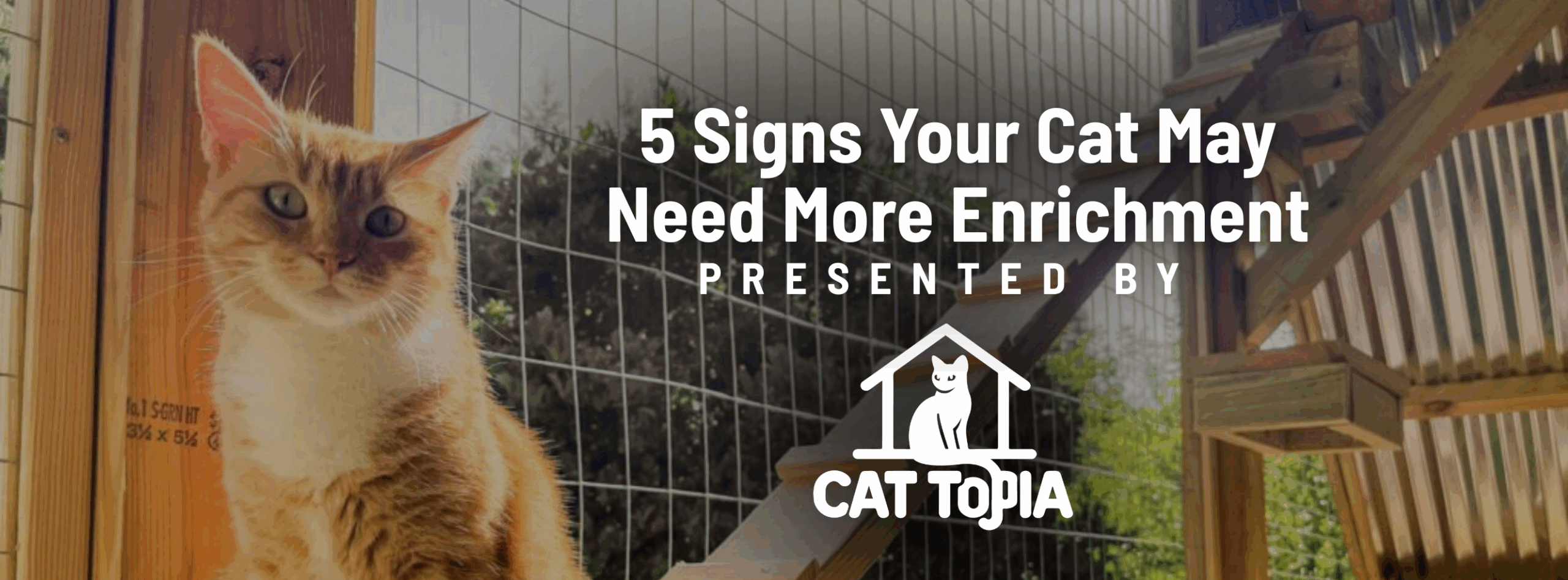
Many cat owners believe that as long as their feline has food, water, and a clean litter box, their needs are fully met. While these basics are essential, cats also require mental and physical stimulation to thrive. Without enrichment, indoor cats can become bored, stressed, and even develop health problems that affect their overall well-being.
In this article, we'll explore why enrichment is so important for indoor cats, highlight five common signs that your cat may need more stimulation, and share simple, practical ways you can add enrichment to their daily life.
Why Enrichment Is Crucial for Indoor Cats
Keeping cats indoors is one of the best ways to protect them from outside dangers like traffic, predators, and disease.
Cats are instinctive hunters, climbers, and explorers. When those needs aren't met, their well-being can decline. Enrichment helps fill that gap by providing outlets for both physical and mental activity. Without it, cats may face:
- Boredom and stress from lack of stimulation
- Behavioral issues such as aggression, overgrooming, or destructive scratching
- Physical health problems like obesity and reduced mobility
- Emotional withdrawal or depression from unmet instincts
So how do you know if your cat needs more enrichment? Here are five clear signs to look out for.
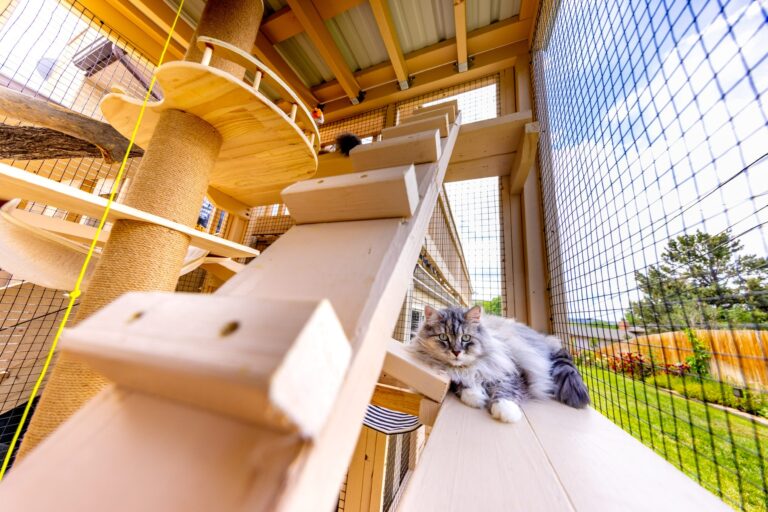
5 Signs Your Cat May Need More Enrichment
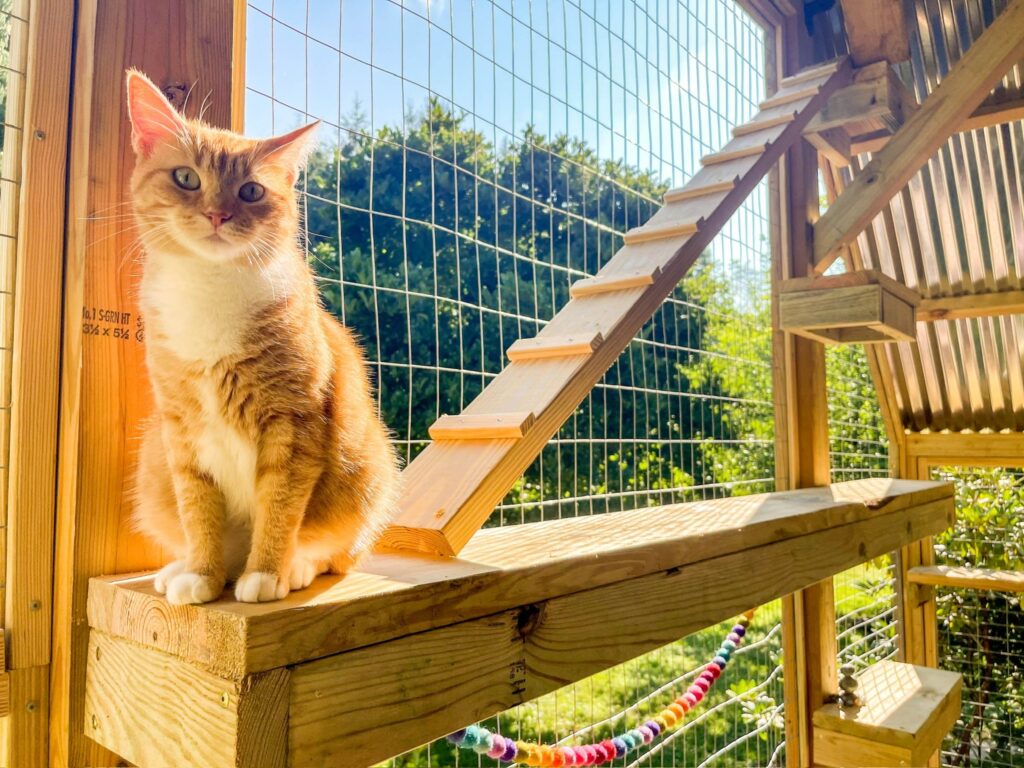
Destructive Behavior
If your cat is scratching furniture, chewing cords, or knocking objects off tables, it may be more than just "bad behavior." Often, these actions are boredom-driven and serve as an outlet for pent-up energy. Without proper enrichment, cats find their own ways to stay stimulated — and unfortunately, that usually means targeting your belongings.
Overgrooming or Excessive Licking
Cats are naturally fastidious, but when grooming turns obsessive, it's often a sign of stress or lack of stimulation. Overgrooming can lead to bald spots, irritated skin, or even sores. In many cases, this is your cat's way of self-soothing when they don't have enough other outlets for their energy and instincts.
Weight Gain and Lethargy
A sedentary cat is at high risk for obesity and related health problems like diabetes or joint pain. Many indoor cats sleep excessively, not because they're inherently "lazy," but because they lack opportunities for activity. If your cat spends most of the day sleeping or eating with little play in between, they likely need more enrichment.
Aggression or Irritability
Does your cat swat, bite, or lash out unexpectedly? Sometimes this behavior stems from frustration rather than a true aggressive nature. Without enough outlets to release energy, cats can redirect their pent-up drive into aggression toward humans or other pets in the home.
Excessive Vocalization or Attention-Seeking
If your cat meows constantly, especially at night, it may be a sign they're craving stimulation. Excessive vocalization is often a way for cats to demand attention, interaction, or play. This can be particularly noticeable in indoor cats who lack natural hunting and exploring opportunities.
While these five signs are often linked to a lack of enrichment, they can also point to underlying health issues. Always consult with your veterinarian to rule out medical causes before assuming it's simply an enrichment problem.
Simple Ways to Add Enrichment to Your Cat's Life
The good news is that adding enrichment doesn't have to be complicated or expensive. Even small changes to your cat's routine and environment can make a big difference in their happiness and health. Here are a few simple strategies to try:
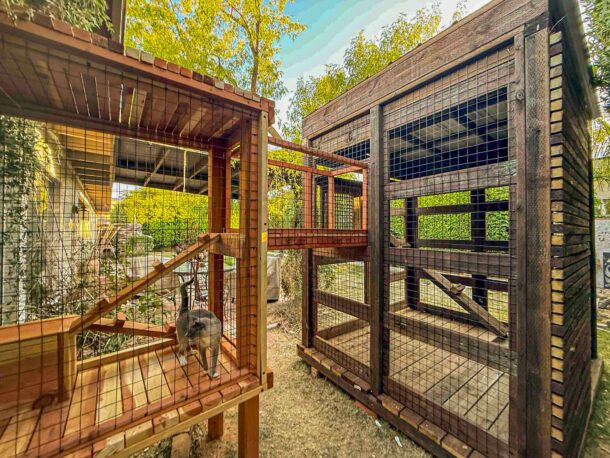
Safe Outdoor Access:
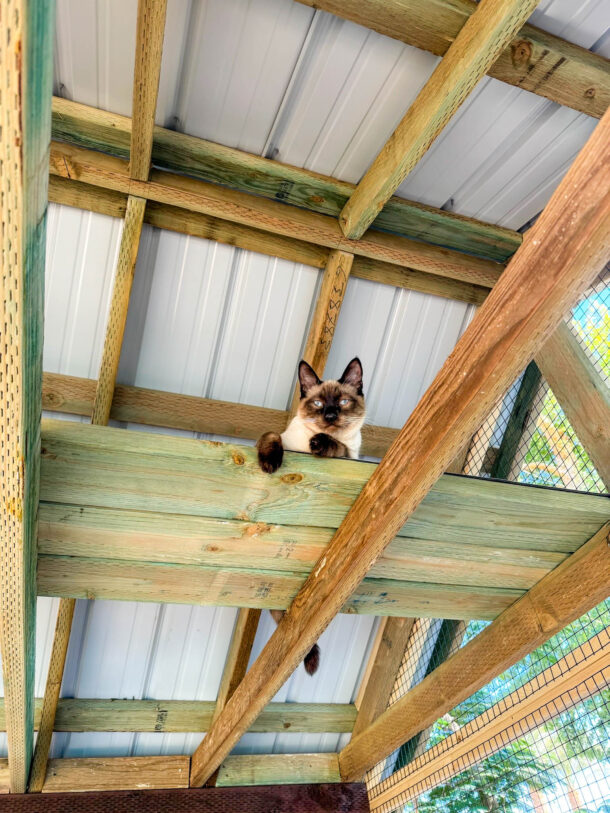
It's also important to remember that enrichment isn't one-size-fits-all — every cat responds differently depending on their age, breed, and personality.
Simple Steps Toward a More Engaged, Happy Cat
Enrichment isn't just a bonus for your cat, it's a necessity. Indoor cats depend on us to provide the stimulation they would naturally find through hunting, climbing, and exploring. Without it, they can face a range of behavioral, physical, and emotional challenges that impact their overall health and happiness.
By watching for the five warning signs, destructive behavior, overgrooming, weight gain and lethargy, aggression, and excessive vocalization, you can better understand when your cat's environment needs more variety and stimulation.
The good news is that even small changes can make a big difference. Rotating toys, adding a new perch, or introducing puzzle feeders can spark your cat's curiosity and bring new energy into their daily routine. For the ultimate upgrade, consider safe outdoor access with a catio, which allows your feline to experience the best of both worlds: the security of indoor living and the enrichment of the outdoors.
With just a little effort, you can transform your cat's environment into one that supports their physical health, sharpens their mind, and strengthens your bond, ensuring a happier, more fulfilled life for your feline companion.




